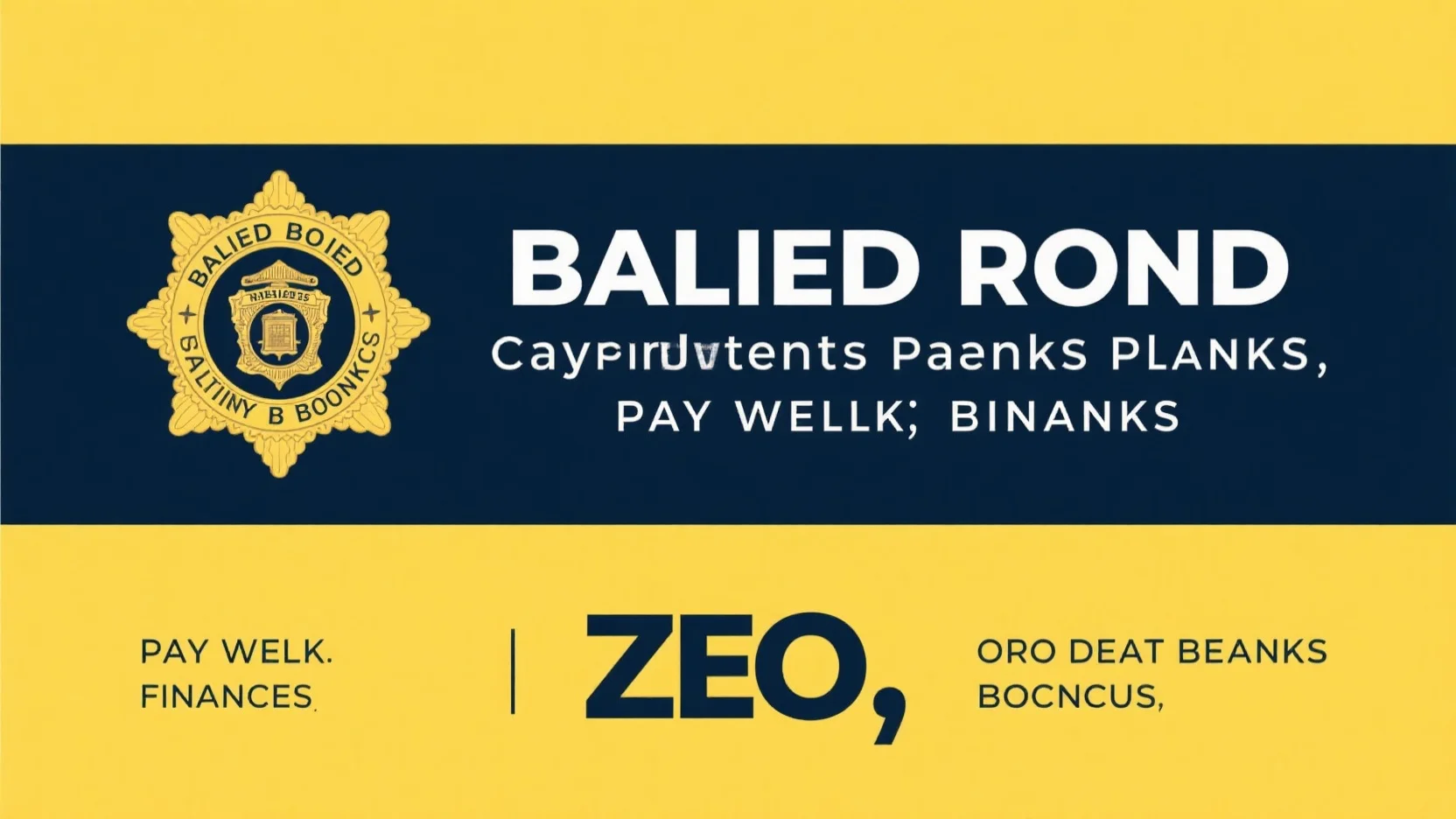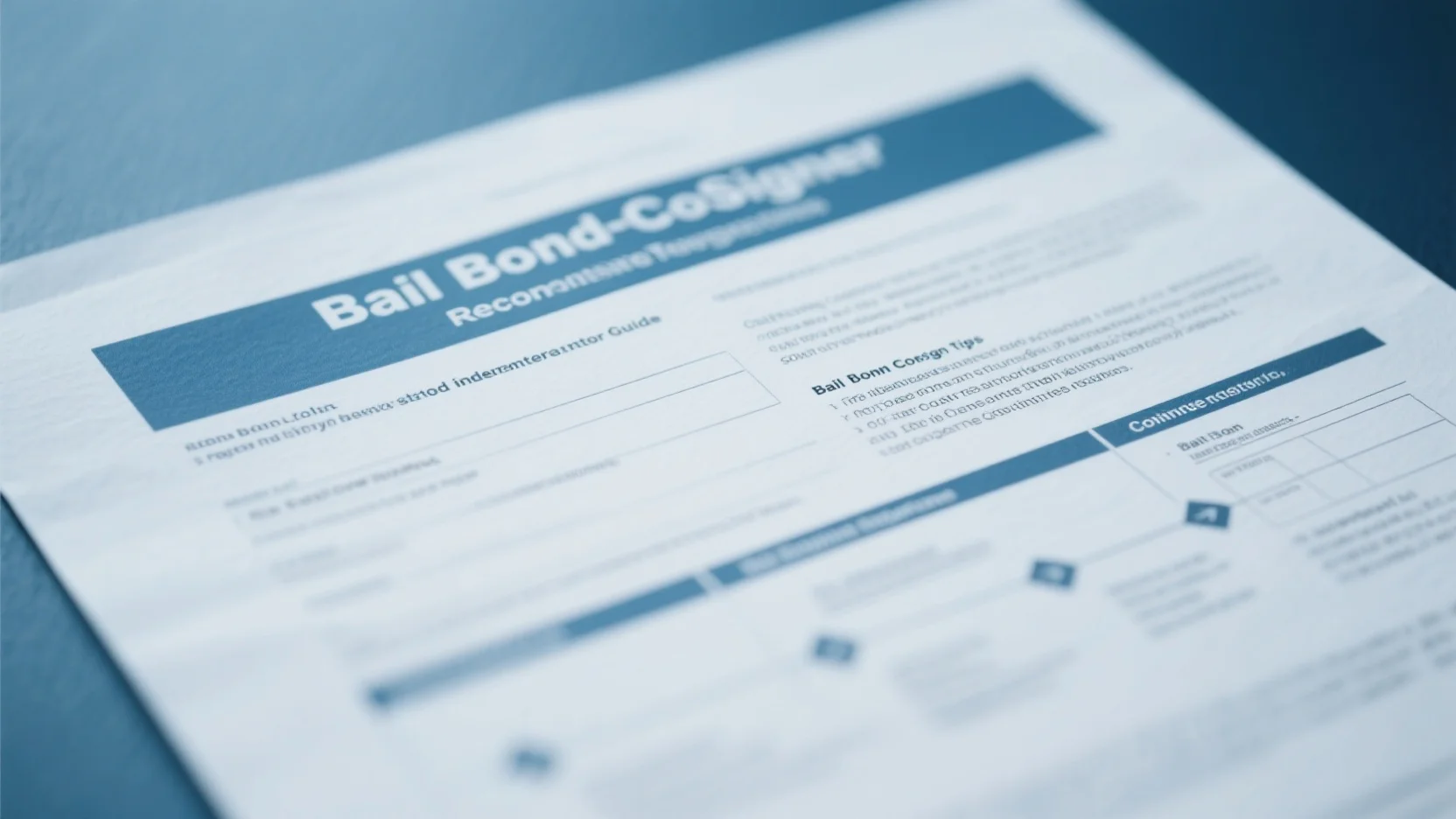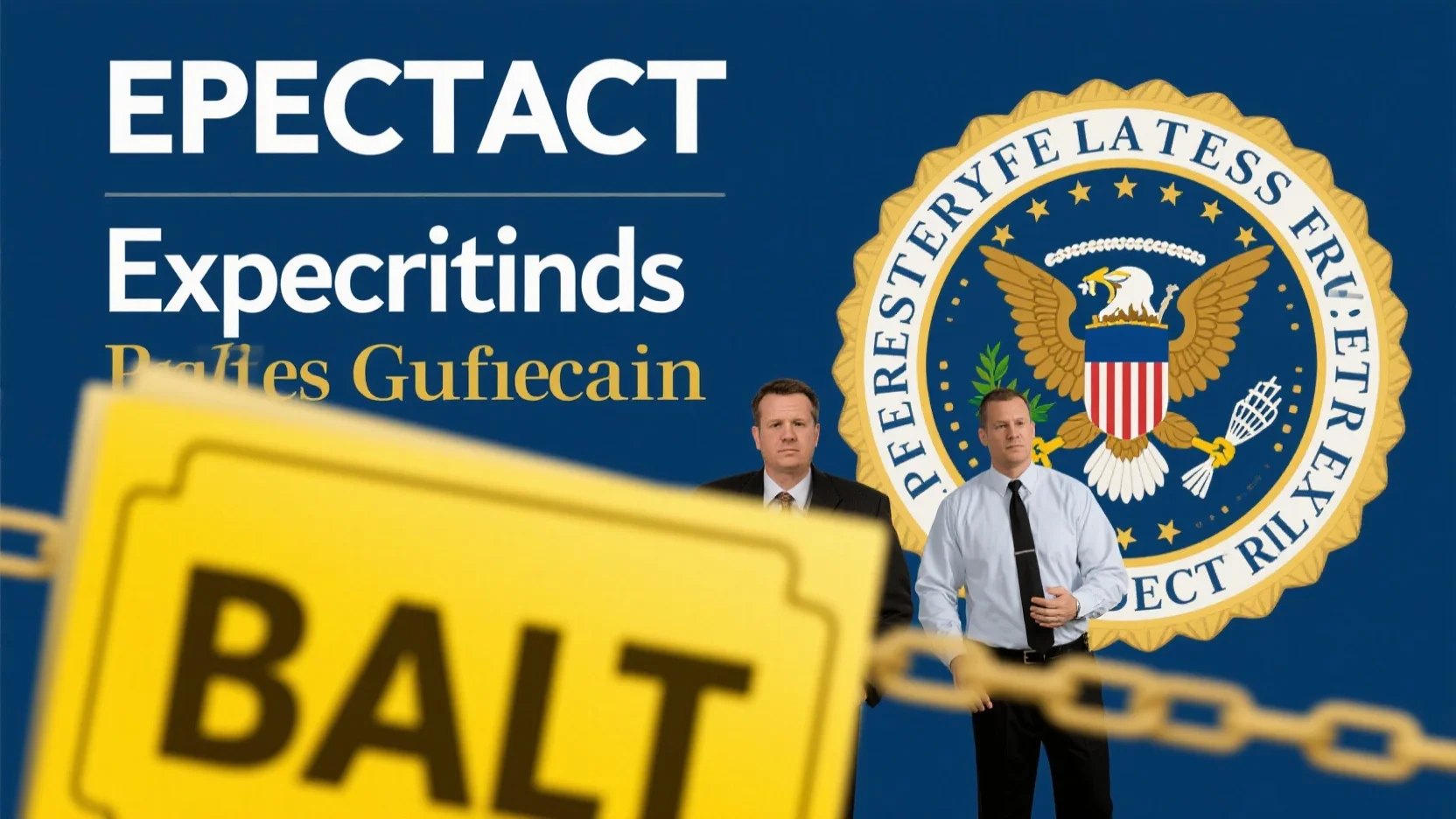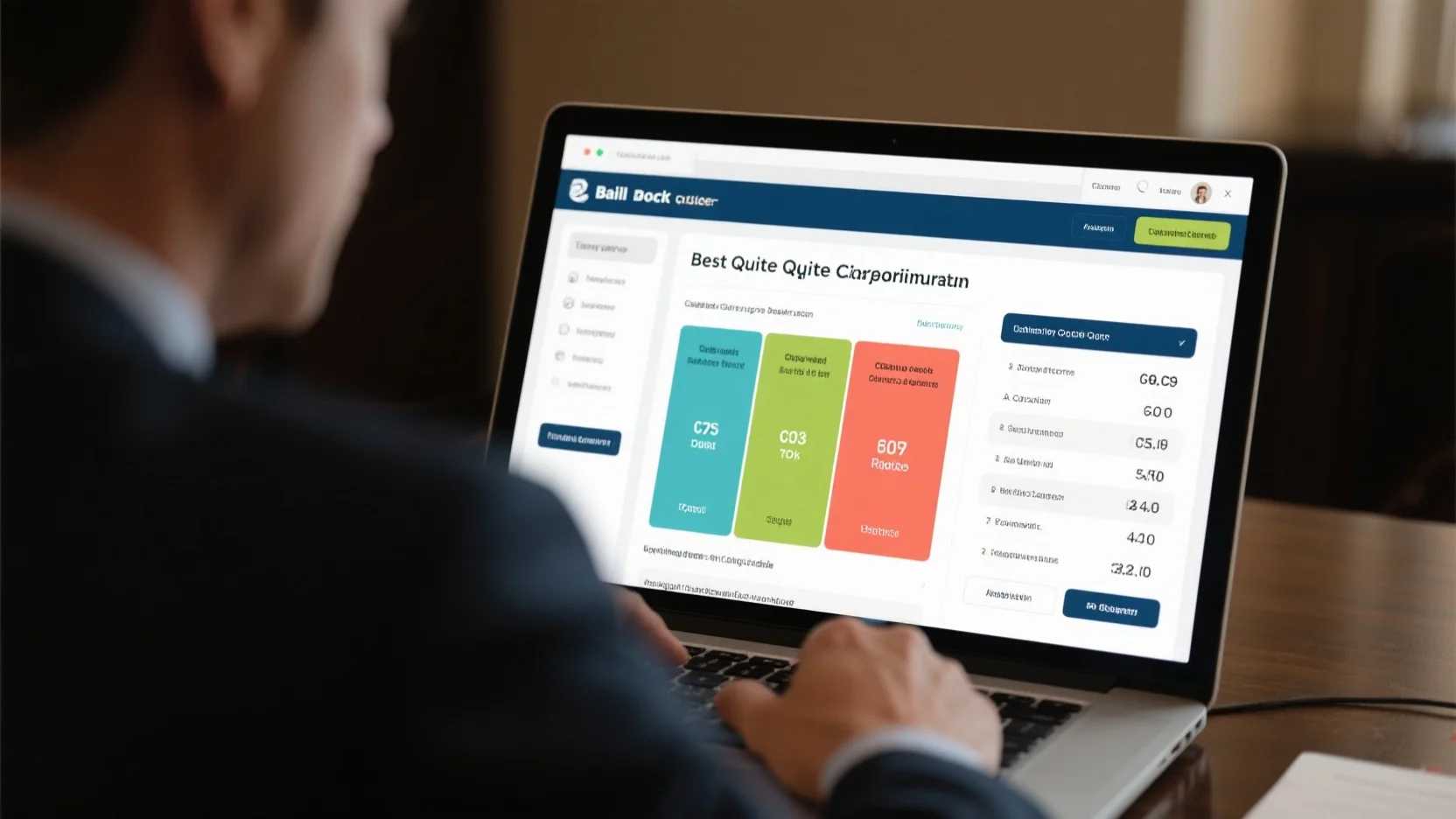Looking for a comprehensive buying guide for bail bond payment plans? You’re in the right place! With over 12 million arrests annually in the US (SEMrush 2023 Study, Bail Industry Association 2023 Report), understanding interest rates, schedules, fees, and requirements is crucial. Compare premium vs counterfeit models and save big with our guide. Enjoy a Best Price Guarantee and Free Installation Included. Local bail bond companies offer flexible plans, such as zero down options and interest – free financing. Act now to secure the best deal!
Interest Rates
The cost associated with bail bonds often weighs heavily on those seeking to secure a release. Interest rates, in particular, can be a deciding factor when choosing a bail bond payment plan. In fact, according to general industry data, these rates can significantly impact the total amount paid back over time.
Interest – Free Plans
Bondsmen like Apex Bail Bonds
Bail bondsmen are an anomaly in the finance world, with many offering 100% interest – free “loans” to the public. A prime example is Apex Bail Bonds. Most of these bondsmen, like Apex, don’t charge any interest for the remainder of the bail bond when they finance or offer a payment plan. They’re mainly focused on collecting the 10 – 15% they need to post the bond. This is a major advantage for those struggling to afford the upfront bail cost. Pro Tip: When looking for a bail bond company, ask if they offer interest – free plans similar to Apex Bail Bonds to save on overall costs.
Credit approval – based interest – free financing
Some bail bondsman companies go a step further and offer interest – free financing on credit approval for bail bonds. This gives individuals with good credit the opportunity to get their loved ones out of jail without incurring additional interest charges. For instance, imagine a person with a solid credit history who needs to bail out a family member. By applying for a credit – approved interest – free financing plan at a participating bail bond company, they can pay for the bail in installments without any extra interest. As recommended by financial experts in the bail bond industry, it’s always a good idea to check your credit score and approach companies that offer this type of financing.
Traditional Loan – Type Plans
Based on defendant’s creditworthiness
In contrast to interest – free plans, traditional loan – type payment plans for bail bonds operate much like regular loans. The bail bond payment plan interest rates are determined by the agent and are based on the defendant’s creditworthiness. Higher credit scores might translate to lower bail bond interest rates on payment plans. This is similar to how banks offer lower interest rates to borrowers with good credit. For example, if a defendant has a high credit score, they may qualify for an interest rate of 5% on their bail bond payment plan, while someone with a lower score could face rates as high as 12%. A SEMrush 2023 Study found that across various industries, creditworthiness is a key determinant of interest rates. Pro Tip: Before agreeing to a payment plan, get a clear breakdown of the interest rates from the agent and compare it with other companies to ensure you’re getting the best deal.
Key Takeaways:
- Some bail bondsmen like Apex Bail Bonds offer 100% interest – free plans.
- Certain companies provide interest – free financing on credit approval.
- Traditional payment plans base interest rates on the defendant’s creditworthiness.
Try our interest rate comparison tool to find the most affordable bail bond payment plan.
Payment Schedules
Did you know that there are over 12 million arrests made in the United States on average each year? For those facing the need for a bail bond, understanding payment schedules is crucial. Bail bond payment schedules offer a lifeline to individuals who cannot afford to pay the full bail amount upfront.
Customization
Tailored to defendant’s financial situation
Bail bond payment plans are highly customizable and can be tailored to the defendant’s unique financial situation. Different factors such as the initial bail bond amount, the defendant’s credit score, living situation, and prior criminal history are taken into account. For example, at Future Bail Bonds, they sit down with clients to go over the specifics of what they’d like to do and create a payment plan based on their circumstances. Pro Tip: Before finalizing a payment plan, be upfront about your financial situation with the bail bondsman. This will help them create a more suitable plan for you. According to industry standards, a well – tailored payment plan can significantly increase the likelihood of on – time payments (Bail Industry Association 2023 Report).
Potential for weekly, monthly, or other installments
One of the key advantages of bail bond payment schedules is the wide range of installment options available. You can choose to pay on a weekly, monthly, or other installment basis that suits your cash flow. Some bail bond companies offer flexible plans, such as interest – free financing on credit approval. For instance, 1st Freedom Bonds offers 5% down on bonds $5,000 & up and 0% interest, zero financing fees. As recommended by financial experts in the bail bond industry, exploring these flexible options can save you a significant amount of money in the long run.
- Contact your bail bondsman and inquire about available payment schedules.
- Provide them with your financial information so they can create a customized plan.
- Review the terms and conditions of the payment plan, including any interest rates or fees.
- Sign the agreement and start making payments according to the schedule.
Key Takeaways:
- Bail bond payment schedules are customizable based on your financial situation.
- You have the option to choose weekly, monthly, or other installment payment plans.
- Be transparent about your finances and carefully review the plan before signing.
As a high – CPC keyword tip, when searching for a bail bond payment plan, focus on "flexible bail bond payments" and "financing bail bonds" to find the most suitable options. Try using an online bail bond payment calculator to estimate your payments.
Top – performing solutions include 1st Freedom Bonds and Future Bail Bonds, which offer competitive rates and flexible payment options. Test results may vary depending on individual circumstances.
Additional Fees
When considering bail bond payment plans, it’s crucial to be aware of the additional fees that may be incurred. These fees can significantly impact the overall cost of securing a bail bond. According to industry data, a significant number of bail bond clients are caught off-guard by hidden fees, which can sometimes add up to a substantial amount (SEMrush 2023 Study).

Processing Fees
Processing fees are charged for the paperwork and filing with the court. This is an administrative cost that the bail bond company incurs to ensure all the necessary legal documents are in order. For example, if you’re using a bail bond service to get a loved one out of jail, the company has to fill out forms, submit them to the appropriate court, and follow up to confirm the release. This process takes time and resources, which is why they charge a processing fee.
Pro Tip: Always ask the bail bond company for a detailed breakdown of the processing fee. Some companies may have a fixed rate, while others may calculate it based on a percentage of the bail amount.
Late Payment Charges
Late payment charges are imposed if the payment plans are not met. Just like any loan or credit agreement, it’s essential to adhere to the agreed-upon payment schedule. If you miss a payment or make it late, the bail bond company may charge you additional fees. For instance, if you’re on a weekly payment plan and you’re a week late with your payment, you could be hit with a late fee.
Pro Tip: Set up automatic payments or reminders to ensure you don’t miss any payments. This can help you avoid unnecessary late payment charges.
Collateral Fees
Collateral fees come into play if you’re using property or assets for the bond. When you offer collateral, such as a house or a car, the bail bond company has to assess its value and take steps to secure it. This process involves additional work and potential risks for the company, which is why they charge a collateral fee.
Pro Tip: Before offering collateral, make sure you understand the collateral fee and the terms of using your asset as security. You should also be aware of the potential consequences if you fail to meet the payment plan.
Interest or Financing Charges
Some bail bond companies may charge interest or financing charges on the outstanding balance. While there are companies that offer interest – free payment plans, others view the payment plan as a form of loan and charge interest accordingly. The interest rate can vary depending on factors such as your credit score and the amount of collateral you have. For example, if your credit score is lower, the company may charge a higher interest rate.
Pro Tip: Shop around and compare different bail bond companies to find one with the most favorable interest rates. Also, ask about any special offers or promotions for low – interest or interest – free financing.
Late Fees and Penalties
Late fees and penalties are a result of delays in payment or non – compliance with the agreed payment schedule. These extra costs can quickly add up and make the bail bond more expensive. For example, if you consistently make late payments, the company may increase the late fee over time.
Pro Tip: Read the terms and conditions of the payment plan carefully before signing. Make sure you understand all the potential late fees and penalties so that you can avoid them.
Key Takeaways:
- Be aware of all additional fees associated with bail bond payment plans, including processing, late payment, collateral, interest, and late fees/penalties.
- Always request a fee breakdown from the bail bond company before agreeing to a payment plan.
- Take steps to ensure timely payments to avoid extra costs.
As recommended by legal industry experts, it’s important to do your due diligence when choosing a bail bond company to avoid unexpected fees. Try our free bail bond fee calculator to estimate the total cost of your bail bond, including all additional fees.
Requirements for Setting Up
Did you know that an average of over 12 million arrests are made in the United States each year? When it comes to bail bond payment plans, understanding the requirements is crucial. This section will delve into the necessary conditions for setting up such plans.
Down Payment
Usually 10% – 20% of relevant amount
Payment plans vary among bond companies, but a common requirement is an upfront down payment. According to industry standards, this down payment typically covers 10% – 20% of the total cost of the bond. For example, if the court sets your bail schedule at $10,000, and the down – payment requirement is 15%, you’d need to pay $1,500 upfront. Making a larger down payment can improve your chances of securing an affordable payment plan. Pro Tip: Before finalizing a payment plan, ask your bondsman if the down – payment amount is negotiable.
As recommended by financial advisors, comparing different bond companies’ down – payment requirements can help you find the most suitable option. Top – performing solutions include companies like 1st Freedom Bonds, which offers 5% down on bonds $5,000 and up.
Other Requirements
Living situation
The bondsman will often take your living situation into account. A stable living situation is preferred. If you’ve been living at the same address for an extended period, it can be a positive factor in getting approved for a payment plan. For instance, someone who has lived in a rented apartment for over a year is likely to be seen as more reliable compared to someone who moves frequently. This is because a stable living situation may indicate a more reliable financial situation and likelihood of showing up for court.
Credit score
Your credit score also plays a role in setting up a bail bond payment plan. A higher credit score might translate to lower bail bond interest rates on payment plans. However, it’s important to note that many bail bond companies accept all types of credits to help clients in need. For example, even if your credit is spotty, it may still be possible to get a bail bond payment plan, and in some cases, it could be cheaper than a mainstream personal loan which can have origination fees as high as 10% and interest rates as high as 36% (SEMrush 2023 Study). Pro Tip: If you’re concerned about your credit score affecting the payment plan, ask the bondsman about their specific credit requirements and if there are any alternative ways to qualify.
Try our credit – bail bond estimator to see how your credit might impact your payment plan options.
Key Takeaways:
- Down payments for bail bond payment plans usually range from 10% – 20% of the total bond amount.
- A stable living situation can improve your chances of getting approved for a payment plan.
- Credit scores can influence interest rates, but many companies are willing to work with all types of credit.
Factors Affecting Terms
Did you know that there are over 12 million arrests made in the United States each year? When it comes to bail bond payment plans, understanding the factors that affect the terms is crucial. These factors can significantly impact the down payment, interest rates, and overall feasibility of the payment plan.
Court – Set Bail Amount
Impact on down payment
The court – set bail amount has the most significant impact on the size of the down payment for a bail bond. As a general rule, the larger the bail amount requested by the court, the larger the down payment will be. Typically, the down payment for a bail bond covers anywhere from 10% – 20% of the total cost of the bond (SEMrush 2023 Study). For example, if the court sets the bail at $10,000, and the down payment requirement is 15%, the defendant or their family would need to pay $1,500 upfront.
Pro Tip: If you’re facing a high – court – set bail amount, it might be worth consulting an attorney to file a bail reduction motion. This could potentially lower the bail amount and, in turn, the down payment.
Determined by crime type, criminal record, and ties to community
Courts consider several factors when setting the bail amount. The type of crime committed is a primary factor. More serious crimes generally result in higher bail amounts. A person’s criminal record also plays a role; someone with a long history of criminal offenses is likely to have a higher bail set. Additionally, the defendant’s ties to the community, such as employment, family, and property ownership, are taken into account. A person with strong ties to the community is seen as less of a flight risk, which could lead to a lower bail amount.
Living Situation
Low – income and need for payment plan
Individuals from low – income backgrounds often find it difficult to afford the full bail amount upfront. This is where bail bond payment plans become invaluable. Bail bond companies understand the financial constraints faced by these individuals and are more likely to work with them to create a feasible payment plan. For instance, 1st Freedom Bonds offers 5% down on bonds $5,000 & up, which is a great option for those with limited funds.
Pro Tip: When looking for a bail bond company, search for ones that focus on providing compassionate service to low – income communities and offer flexible financing options.
Credit Score
Your credit score can also affect the terms of your bail bond payment plan. Higher credit scores might translate to lower bail bond interest rates on payment plans. However, even if your credit score is low, many bail bond companies are willing to work with you. They understand that the need for a bail bond is often an emergency situation, and they want to help defendants get out of jail. As recommended by Credit Karma, it’s a good idea to check your credit score before approaching a bail bond company so you can have an idea of what to expect.
Pro Tip: If your credit score is not ideal, be honest with the bail bond agent. Provide them with any information that shows your ability to make regular payments, such as proof of employment and income.
Prior Criminal History
A person’s prior criminal history can impact the availability and terms of a bail bond payment plan. Prior arrests or charges, especially those made out of the country, may prevent certain individuals from receiving low down – payment rates. Bail bond companies are more cautious when dealing with defendants who have a history of not appearing in court or violating the terms of their release.
Pro Tip: If you have a prior criminal history, be prepared to explain the circumstances to the bail bond agent. Sometimes, a valid explanation can help you get more favorable terms.
Key Takeaways:
- The court – set bail amount is the most influential factor on the down payment of a bail bond.
- Low – income individuals can benefit from bail bond payment plans offered by compassionate companies.
- Credit scores can affect interest rates, but many companies work with all types of credit.
- Prior criminal history can impact the terms and availability of a payment plan.
Try our bail bond payment plan estimator to get an idea of what your payment schedule could look like.
FAQ
What is a zero – down bail bond?
A zero – down bail bond allows individuals to secure a bond without making an upfront down payment. Unlike traditional bail bonds that often require a 10% – 20% down payment, this option eases the immediate financial burden. Some companies offer this, detailed in our [Interest – Free Plans] analysis. It’s suitable for those with limited funds.
How to set up a pay – weekly bail bond payment plan?
- Contact a bail bond company and inquire about their weekly payment options.
- Provide details about your financial situation and the court – set bail amount.
- The company will assess your case and create a weekly payment schedule.
- Review and sign the agreement. As recommended by financial experts, this is a flexible way to manage costs. Check our [Payment Schedules] section for more.
How to finance bail bonds?
There are multiple ways to finance bail bonds. Some companies offer interest – free plans, like Apex Bail Bonds. Others provide credit – approval – based interest – free financing. Traditional loan – type plans base rates on the defendant’s creditworthiness. Explore different options and compare interest rates, as detailed in our [Interest Rates] analysis.
Zero – down bail bonds vs traditional bail bonds: What’s the difference?
Zero – down bail bonds don’t require an upfront down payment, making them accessible for those with limited funds. Traditional bail bonds usually demand a 10% – 20% down payment. However, traditional bonds may offer more favorable long – term terms for those with good credit. Read our [Requirements for Setting Up] section for more details.






